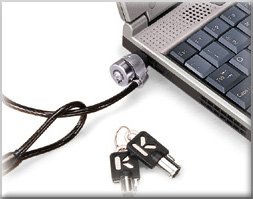10 Wi-Fi security tips for employees
Wi-Fi security is a very popular topic today, the 'best method' is still strongly debated on many forums. We are aware of this from watching a lot of posts posted on forums and discovering that there are many points of view that require secure connection with completely unfamiliar Wi-Fi networks.
With that in mind, we want to consider the Wi-Fi security concerns from the point of view of mobile employees. Because such frequent commuters often encounter unfamiliar Wi-Fi networks, a solution is needed to provide some benefits to those in this situation. Here we offer 10 security tips that road workers should know to avoid security insecurity issues with unknown Wi-Fi networks.
 1. Turn off the Wi-Fi client adapter when not using the Internet
1. Turn off the Wi-Fi client adapter when not using the Internet
The reason for this implementation is so much. First of all it can save battery power for your laptop - this is really a problem for employees on the road. Second, it is the simplest way to prevent attacks using the Windows configuration that is set by default to allow anonymous ad hoc connections.
2. Verify that the SSID corresponds to the provider Wi-Fi network
Evaluating SSID will help you prevent the connection with a bad network called Evil twin. Evil twin is mimicked after a third-party intrusion attack, where hackers set up a device to impersonate a trusted Wi-Fi network. Users are very easy to use this fake network and thus allow an attacker to get traffic bytes sent or received.
3. Install firewall software on your computer
Microsoft Windows XP and Vista are combined with an internal firewall software, but in both cases it is not really appropriate. There are actually a lot of very good free firewall software applications that allow you to protect yourself on the road. We use Online-Armor, a new app that has many very good reviews about it.
4. Disable Windows file and printer sharing
By default, Windows file and printer sharing features are disabled, but many users enable this feature to share files and printers at work or at home. Enabling this feature when moving outside is a problem. It can allow strangers in certain Wi-Fi networks to access unauthorized files to your files. In this case you should take a look at how to disable file and printer sharing in Windows on QuanTriMang.com.
5. Avoid sensitive online transactions when using open Wi-Fi networks
This is obvious but we feel it is really important to mention it.
6. Always update your laptop's operating system
Along with the operating system, you must keep both anti-virus software, firewalls, web browsers and even Wi-Fi client applications up to date. Only in that way will you eliminate many of the problems caused by application vulnerabilities.
7. Protect personal information as well as credit cards, bank cards
Allowing a web browser to remember personal information is a way for hackers to use to retrieve your sensitive information if the laptop is lost or stolen.
 8. Use safe and anonymous Web surfing techniques
8. Use safe and anonymous Web surfing techniques
This is very important if a VPN service is not available or the VPN is not set up properly. There are many different Web services that provide SSL VPN solutions by creating an encrypted tunnel from the laptop to their secure server. This approach has eliminated all possible problems. One of the preeminent services is Megaproxy and TOR. We use a lighter method based on USB flash drive technology. IronKey is a secure USB flash drive with FireFox and TOR technology pre-installed. If Internet access is available, the device will automatically configure an SSL tunnel to secure IronKey servers.
9. If necessary, use VPN technology
The problem with previous tips is that it applies only to Web-based applications. So what about email applications like Outlook? This is also where VPN is developing its role. Most employees on the road who are on duty use this method in a way that is not really thorough. VPN tunnel allows employees to remotely connect to a home or corporate network. Then all common business applications, file sharing and Internet access are managed by the company's network. There are many hardware and software VPN applications that you can choose from. In this case, our choice is OpenVPN.
10. Use remote access applications for security issues
Not having any sensitive data traffic transmitted on suspicious networks to your laptop is the only solution. This can be done using a service like LogMeIn, which will allow employees to remotely control a home or office computer via an SSL tunnel. Surfing the Web, email and other applications is only done on remote computers. Therefore, no data is transmitted to the computer of the person traveling on the road.
Conclude
The employees working on the road must be really cautious and creative. In addition to the usual work, they need to maintain communication continuously when away from home and office. With these simple tips we hope to help protect their computer and the information on it does not have any problems in security wherever it is.
You should read it
- ★ 8 apps that help you change yourself and change the world
- ★ 7 utility applications should install for Windows
- ★ 5 types of mobile applications should not be installed on smartphones
- ★ What is a third-party application?
- ★ Detected 3 fake YouTube applications that secretly record and steal user information